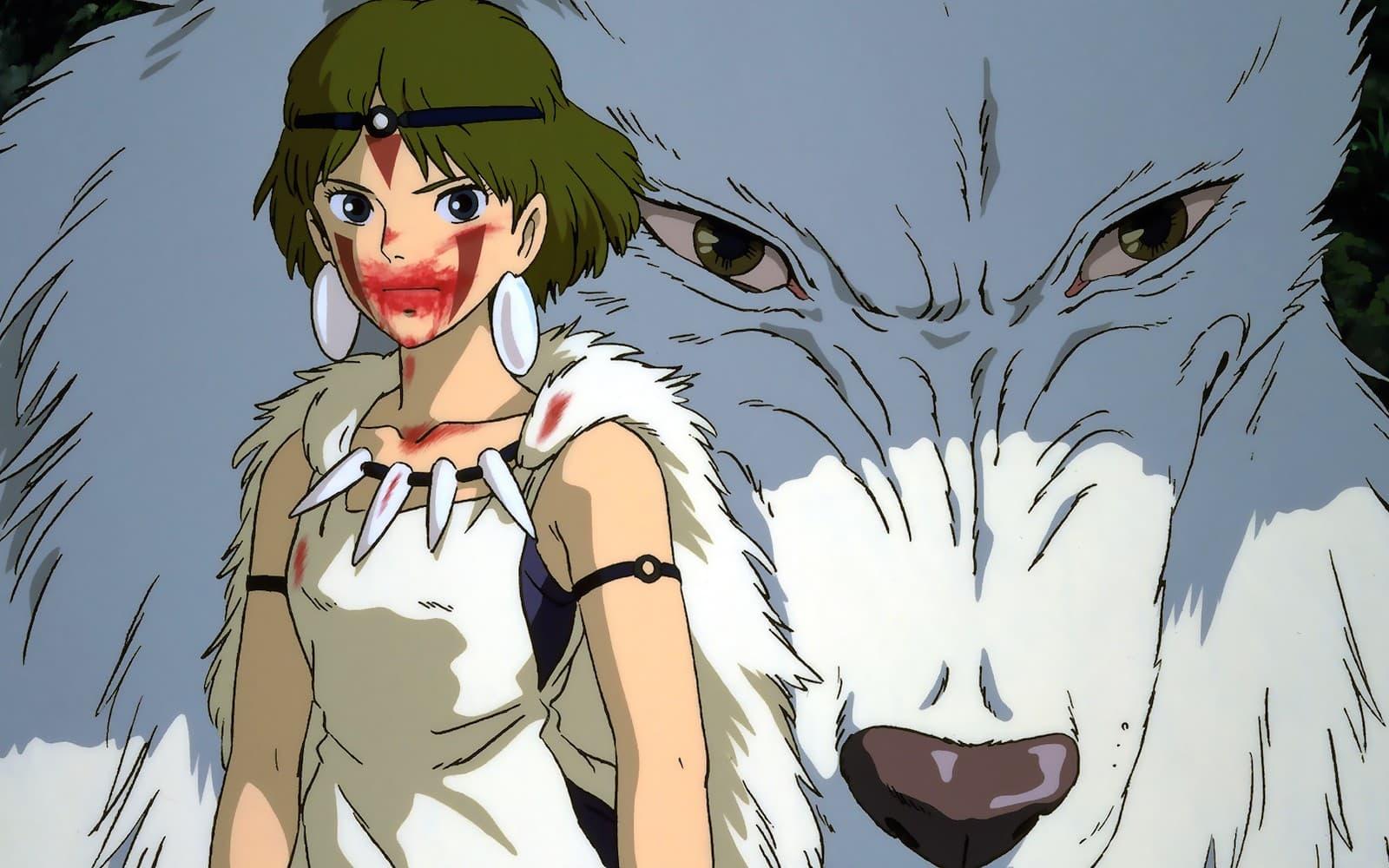Princess Mononoke and the Rage of Hayao Miyazaki

One of my favorite Hayao Miyazaki movies is 1997’s Princess Mononoke, a historical fantasy epic set during feudal Japan. Though made with the same level of imagination and artistry as you’d expect from Miyazaki, it’s arguably his darkest film; it’s certainly his most graphic, with several bloody combat scenes involving severed limbs and decapitation.
(The first time I saw Princess Mononoke, I was sitting in front of a family with some small children who were likely expecting something Disney-esque. I could practically feel their discomfort during the battle scenes.)
Compared to, say, My Neighbor Totoro or Kiki’s Delivery Service, Princess Mononoke might seem like an outlier in Miyazaki’s career. But Bright Wall/Dark Room’s Eric McAdams has written an excellent essay about Princess Mononoke that suggests it might be the film that best represents Miyazaki’s worldview.
“Can you feel my pent-up rage?” Miyazaki asks while painting storyboards in the 2013 documentary In the Kingdom of Dreams and Madness directed by Mami Sunada. He has just talked about how it’s impossible to express the meaning of a film in words, and he’ll go on to say that making movies is a futile, dying endeavor. He feels the same way about the world at large, frequently making despairing comments about society to nobody in particular. It’s hard to hold it against him; knowing that Miyazaki is an environmentalist, can you blame him if he despairs about the future? Knowing that he grew up in Japan in the aftermath of World War II, can you blame him if he has a dark view on the morality of man?
Maybe it’s a shock to see him grouse about anything and everything, to feel this deep, dark well of pessimism and anger expressed so constantly. Maybe it’s a shock to read collections of his work and find conversations like the one he had with Yoshie Hotta and Ryōtarō Shiba in 1992, where he states that he was awed and exhilarated when the other two declared, “people are irredeemable.” Maybe it’s a shock to find out that he admired a kind of nihilism based on realism. This surprise may come from the fact that many of his movies don’t even hint at Miyazaki’s unrelenting anger, let alone illuminate the source of it.
But there is one that comes closer than all the others.
But just as Princess Mononoke is complicated with its portrayal of both beauty and terror, as well as its depiction of morally complex characters, so too is it creator.
Miyazaki — an idealist, pacifist, and environmentalist — recognizes that humanity doesn’t deserve to be forgiven. Its sins, against itself and against the planet, are too old, too fresh, too many, and too great. And he isn’t so arrogant that he can’t see similar failings writ in miniature in his own personality. But he also recognizes a duty to the young people of the world, and an enduring responsibility to protect and nurture whatever small good he can, even though he keeps trying to retire.
Which brings me to one of my favorite Miyazaki quotes, from a 2005 interview with Xan Brooks:
His is a very serene and contented brand of fatalism. He talks about New Orleans, and Hurricane Katrina and insists that the same thing will happen in Tokyo. There are a lot of water-gates in the city, and the river runs past his home. He smiles and taps ash from his cigarette. There are too many people in the world, he says, and too many wrong turns along the way. At the age of 64, he gives the impression that the planet is doomed but he’ll soon be leaving it, and not a minute too soon.
“Personally I am very pessimistic,” Miyazaki says. “But when, for instance, one of my staff has a baby you can’t help but bless them for a good future. Because I can’t tell that child, ‘Oh, you shouldn’t have come into this life.’ And yet I know the world is heading in a bad direction. So with those conflicting thoughts in mind, I think about what kind of films I should be making.”
This world will be a much poorer place when Hayao Miyazaki leaves it.